December 18, 2014 •
Thursday News Roundup
Lobbying “Republican Congress Lures Lobbyists Back to Capitol Hill” by Megan Wilson for The Hill “Mollis Adopts Hearing Officer’s Decision that Corso Engaged in Unregistered Lobbying Related to 38 Studios” by Jennifer Bogdon for Providence Journal Campaign Finance “Secretive Nonprofits […]
 Lobbying
Lobbying
“Republican Congress Lures Lobbyists Back to Capitol Hill” by Megan Wilson for The Hill
“Mollis Adopts Hearing Officer’s Decision that Corso Engaged in Unregistered Lobbying Related to 38 Studios” by Jennifer Bogdon for Providence Journal
Campaign Finance
“Secretive Nonprofits Flourished – and Succeeded – in 2014 State Elections” by Reity O’Brien for The Center for Public Integrity
“Who Wants to Buy a Politician?” by Binyamin Appelbaum for New York Times
“New FEC Chief on ‘Dark Money’ Mission” by Dave Levinthal for The Center for Public Integrity
“Ethics Commission Hits Former Candidate, Treasurer with $43,000 Fine” by Emily Alpert Reyes for Los Angeles Times
“PA Supreme Court: Law firm can forgive U.S. Rep. Bob Brady’s 2007 debt” by Chris Brennan for Philadelphia Daily News
“State High Court to Take up Doe Cases Centered on Walker’s Campaign” by Patrick Marley for Milwaukee Journal Sentinel
Ethics
“Payouts to McCrory, Sanford from Mortgage Broker Raise Ethical Questions” by Michael Biesecker and Mitch Weiss (Associated Press) for Charlotte Observer
Elections
“Jeb Bush’s Decision to Explore Presidential Bid Scrambles the 2016 GOP Field” by Matea Gold and Philip Rucker for Washington Post
Legislative Issues
“Message to Lawmakers: Say what you really think” by Alan Greenblatt for Governing
November 26, 2014 •
District Court Rules FEC Regulation Limiting Disclosure “Arbitrary, Capricious, and Contrary to Law”
On November 25, the United States District Court for the District of Columbia ruled corporations and labor organizations making electioneering communications are required to disclose all donors making contributions over $1,000. Under 11 C.F.R. §104.20(c)(9), the Federal Election Commission’s regulation […]
On November 25, the United States District Court for the District of Columbia ruled corporations and labor organizations making electioneering communications are required to disclose all donors making contributions over $1,000. Under 11 C.F.R. §104.20(c)(9), the Federal Election Commission’s regulation ruled invalid, disclosure was only required when made explicitly for the purpose of furthering electioneering communications.
In Christopher Van Hollen v. Federal Election Commission, the Court found the commission’s regulation “arbitrary, capricious, and contrary to law” and “an unreasonable interpretation of the [Bipartisan Campaign Reform Act (BCRA)].” 52 U.S.C. § 30104(f)(d)(E)–(F) of the BCRA does not require any preconditions for when to disclose donors making contributions over $1,000.
The Court ruled the commission’s regulation “serves to frustrate the aim of the statute because the introduction of a subjective test to the reporting regime creates an exception that has the potential to swallow the rule entirely. A donor can avoid reporting altogether by transmitting funds but remaining silent about their intended use.”
The case was brought in 2011 by U.S. Rep. Christopher Van Hollen.
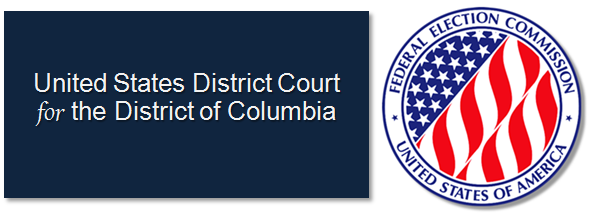
October 28, 2014 •
Tuesday Lobbying and Campaign Finance News Update
Lobbying Arizona: “Lobbyists Aid Campaigns of Doug Ducey, Fred DuVal” by Yvonne Wingett Sanchez and Rob O’Dell for Arizona Republic New York: “Mayor’s Old Pal Wins New Biz as Lobbyist” by Chris Bragg for Crain’s New York Business Oklahoma: “Rule […]
 Lobbying
Lobbying
Arizona: “Lobbyists Aid Campaigns of Doug Ducey, Fred DuVal” by Yvonne Wingett Sanchez and Rob O’Dell for Arizona Republic
New York: “Mayor’s Old Pal Wins New Biz as Lobbyist” by Chris Bragg for Crain’s New York Business
Oklahoma: “Rule Change Will Allow Lobbyists to Spend More on Oklahoma Lawmakers” by Rick Green for The Oklahoman
Campaign Finance
“The Cost of Campaigns” by Clyde Haberman for New York Times
“Campaign Finance Officials Aim to Cure the Paper-Obsessed Senate through Crowd-sourcing, Algorithms” by Nancy Scola for Washington Post
“FEC Deadlock Keeps Internet Free from Broadcast Campaign Ad Regulations” by Stephan Dineen for Washington Times
Connecticut: “In Connecticut Race, a Loophole Lets Party Money Flow for a Kennedy Scion” by Alison Leigh Cowan for New York Times
Kansas: “A Kansas Group’s Push to Oust Judges Reveals a Gap in Campaign Finance Rules” by Robert Faturechi for ProPublica
Ethics
Florida: “Palm Beach County Considers Changes to Ethics Rules” by Andy Reid for South Florida Sun Sentinel
Pennsylvania: “Federal Grand Jury Reviewing Liquor Control Board Violations, Sources Tell Trib” by Kari Andren for Pittsburgh Tribune-Review
Political Advertising
“As Bottle Bill Politics Hits Supermarket Aisles, Shoppers Have Mixed Reactions” by Shira Schoenberg and Carolyn Robbins for MassLive.com
October 15, 2014 •
Connecticut Democratic Party Denounced for Seeking Advisory Opinion
The State Elections Enforcement Commission (SEEC) used unusually strong language while asking the Federal Election Commission (FEC) to prevent the Connecticut Democratic State Central Committee (CDSCC) from using federally designated funds for a state race. The state party has requested […]
 The State Elections Enforcement Commission (SEEC) used unusually strong language while asking the Federal Election Commission (FEC) to prevent the Connecticut Democratic State Central Committee (CDSCC) from using federally designated funds for a state race. The state party has requested an advisory opinion from the FEC approving the use of funds in a federal campaign account to pay for a mailing encouraging the reelection of Gov. Dannel Malloy.
The State Elections Enforcement Commission (SEEC) used unusually strong language while asking the Federal Election Commission (FEC) to prevent the Connecticut Democratic State Central Committee (CDSCC) from using federally designated funds for a state race. The state party has requested an advisory opinion from the FEC approving the use of funds in a federal campaign account to pay for a mailing encouraging the reelection of Gov. Dannel Malloy.
In a letter to the FEC, signed by all five members, the SEEC denounced the inquiry stating it would violate both the letter and spirit of state campaign finance laws. In response, the CDSCC argued it is simply seeking clarification where federal and state laws are in conflict.
Federal law requires certain “federal election activity,” potentially including mailings, be paid for with a minimum of 15 percent federal funds whereas Connecticut law requires state candidates be supported exclusively with state funds. The CDSCC believes, should its reading of the law be confirmed, federal law will preempt state statutes and the use of federal funds will be required.
October 15, 2014 •
Wednesday Government Relations News
Lobbying “Lobbying World” in The Hill. “Will All the GOP Lobbyists Please Stand Up?” by Kate Ackley in Roll Call. Alabama: “Powerful Alabama teacher lobbyist Paul Hubbert dies” by The Associated Press in The News Courier. Campaign Finance “Goldwater would […]
 Lobbying
Lobbying
“Lobbying World” in The Hill.
“Will All the GOP Lobbyists Please Stand Up?” by Kate Ackley in Roll Call.
Alabama: “Powerful Alabama teacher lobbyist Paul Hubbert dies” by The Associated Press in The News Courier.
Campaign Finance
“Goldwater would have hated ‘Citizens United’” opinion piece by Ron Fein in The Washington Post.
“Renewal of the establishment, fueled by money” by Heath Brown in The Hill.
Colorado: “Citizens United can make movie without disclosing donors, court says” by Joey Bunch in the Denver Post.
Kentucky: “Pro-Grimes super PAC money also from out-of-state” by Tom Loftus in The Courier-Journal.
Maine: “State senator from Sanford used PAC money to pay himself and family $17,000” by Naomi Schalit in the Portland Press Herald.
Ethics
“FEC Rulemakings Roil Agency, Critics | Rules of the Game” by Eliza Newlin Carney in Roll Call.
Michigan: “Terri Lynn Land held state meetings at family business” by John Bresnahan in Politico.
Missouri: “Ethics complaint filed over lobbyist gifts to Missouri lawmakers” by Jason Hancock in the Kansas City Star.
North Carolina: “Former Charlotte Mayor Sentenced to Nearly 4 Years in Prison” by Michael Gordon in Governing.
Washington: “No more free lunch: Washington sets limits on how often lobbyists can ply lawmakers” by Reid Wilson in The Washington Post.
Congress
“Laws plummet in post-earmark era” by Niki Papadogiannakis in The Hill.
Elections
“Four Republicans look to make comebacks” by Cristina Marcos in The Hill.
Colorado: “As Midterms Approach, Colorado Stands Out in Expanding Access” by Jonathan Brater in the Brennan Center for Justice Blog.
Tech and Social Media
“Twitter’s Most Popular Congressional Staffer Gets New Title” by Niels Lesniewski in Roll Call.
October 9, 2014 •
National Convention Committees May Accept Political Contributions Separate from Contributions Given to National Party Committees
Today, the Federal Election Commission (FEC) issued an advisory opinion allowing national convention committees to accept contributions separate from national party committees. The decision was supported by Democratic commissioner Ann Ravel and the three Republican commissioners, Lee Goodman, Caroline Hunter, […]
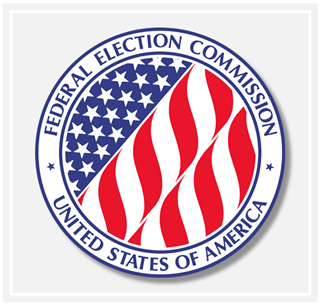 Today, the Federal Election Commission (FEC) issued an advisory opinion allowing national convention committees to accept contributions separate from national party committees. The decision was supported by Democratic commissioner Ann Ravel and the three Republican commissioners, Lee Goodman, Caroline Hunter, and Matthew S. Petersen. The immediate effect is individuals may now contribute an additional $32,400 per calendar year to a convention committee beyond the $32,400 limit permitted to be given to committees of national political parties. The opinion holds that both the National Democratic Committee and the National Republic Committee, who requested the opinion, may each establish convention committees to raise and spend federal funds for convention expenses under separate contribution limits. The FEC found such convention committees qualify as “national committees” subject to their own contribution limits.
Today, the Federal Election Commission (FEC) issued an advisory opinion allowing national convention committees to accept contributions separate from national party committees. The decision was supported by Democratic commissioner Ann Ravel and the three Republican commissioners, Lee Goodman, Caroline Hunter, and Matthew S. Petersen. The immediate effect is individuals may now contribute an additional $32,400 per calendar year to a convention committee beyond the $32,400 limit permitted to be given to committees of national political parties. The opinion holds that both the National Democratic Committee and the National Republic Committee, who requested the opinion, may each establish convention committees to raise and spend federal funds for convention expenses under separate contribution limits. The FEC found such convention committees qualify as “national committees” subject to their own contribution limits.
Additionally, in a 4-2 decision, the Federal Election Commission (FEC) approved final rules concerning independent expenditures and electioneering communications by corporations and labor organizations. Ravel again joined the three Republican commissioners to pass the rules, which were created in response to the 2010 Citizens United v. FEC U.S. Supreme Court decision. They will be effective once they have been transmitted to Congress for a 30-legislative-day review period.
The FEC also approved rule-making and interim final rule responses to McCutcheon v. FEC.
September 23, 2014 •
Tuesday Lobbying and Campaign Finance News Update
Lobbying “Bottom Line” in The Hill. Oklahoma: “State Capitol lobbyist Bart McSpadden dead at 46” by Mark Friedel in the Claremore Daily Progress. Campaign Finance “Democrats relying on big donors to win” by Kenneth P. Vogel and Tarini Parti in […]
 Lobbying
Lobbying
“Bottom Line” in The Hill.
Oklahoma: “State Capitol lobbyist Bart McSpadden dead at 46” by Mark Friedel in the Claremore Daily Progress.
Campaign Finance
“Democrats relying on big donors to win” by Kenneth P. Vogel and Tarini Parti in Politico.
“FEC Chairman Talks ‘Dark Money’ and the Fine Line Between Free Speech and Censorship” by Elizabeth Nolan Brown in Reason.com.
“Is there a right to contribute to out-of-state elections?” by William Baude in The Washington Post.
Massachusetts: “Massachusetts governor’s race has range of cash sources” by Steve Leblanc in the Portland Press Herald.
Massachusetts: “Pro-casino group ramping up campaign spending” by The Associated Press in the Boston Herald.
New Jersey: “N.J. assemblyman wants to end restrictions on campaign donations, lobbying: The Auditor” in NJ.com.
Winnipeg, Canada: “The money behind the politics: Winnipeg’s most generous political donors” by Joanne Levasseur and Sean Kavanagh in CBC News.
Ethics
Tallahassee, Florida: “City approves 2015 budget, more ethics standards” by TaMaryn Waters in the Tallahassee Democrat.
Elections
California: “A show of disunity at California GOP convention” by Michael Finnegan and Seema Mehta in the Los Angeles Times.
California: “AM Alert: Democrats’ legislative supermajority hinges on several key races” by Alexei Koseff in the Fresno Bee.
Michigan: “Michigan GOP Gov. Rick Snyder Has Created an Opening for His Opponent” by Alan Greenblatt in Governing.
Minnesota: “Unions will play key role in Dayton re-election bid” by Ricardo Lopez in the Star Tribune.
Legislative Sessions
Alaska: “Alaska legislative committee reviews progress on crime-reduction bill” by Jerzy Shedlock in the Alaska Dispatch News.
September 11, 2014 •
FEC to Bring Rules into Compliance with Supreme Court Rulings
Federal Election Commission Vice Chairwoman Ann Ravel announced the commission has reached an agreement allowing it to conform its campaign finance rules with the recent rulings of the U.S. Supreme Court. The commission plans to approve the rules on October […]
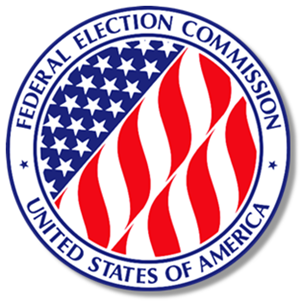 Federal Election Commission Vice Chairwoman Ann Ravel announced the commission has reached an agreement allowing it to conform its campaign finance rules with the recent rulings of the U.S. Supreme Court. The commission plans to approve the rules on October 9, 2014.
Federal Election Commission Vice Chairwoman Ann Ravel announced the commission has reached an agreement allowing it to conform its campaign finance rules with the recent rulings of the U.S. Supreme Court. The commission plans to approve the rules on October 9, 2014.
The rules will remove aggregate contribution limits and create boundaries for unions and corporations taking part in voter registration. The text of the rules is expected to be available within a week of the October meeting.
August 20, 2014 •
Citizens United Files Suit Against Colorado Secretary of State
On August 14, Citizens United filed suit in federal court against Colorado Secretary of State Scott Gessler. The lawsuit is a response to Deputy Secretary of State Suzanne Staiert’s June decision classifying the group’s upcoming documentary as a reportable electioneering […]
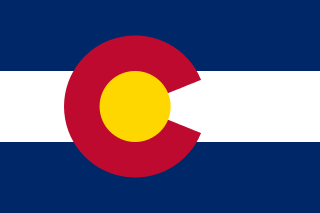 On August 14, Citizens United filed suit in federal court against Colorado Secretary of State Scott Gessler. The lawsuit is a response to Deputy Secretary of State Suzanne Staiert’s June decision classifying the group’s upcoming documentary as a reportable electioneering communication.
On August 14, Citizens United filed suit in federal court against Colorado Secretary of State Scott Gessler. The lawsuit is a response to Deputy Secretary of State Suzanne Staiert’s June decision classifying the group’s upcoming documentary as a reportable electioneering communication.
Citizens United had hoped the documentary would be excluded from the definition of reportable electioneering communication under a general press-entity exemption. Although the Federal Election Commission applies such an exemption for Citizens United at the federal level, the secretary of state lacked the authority to import the FEC’s analysis and decision.
Citizens United is now asking the court to permanently enjoin enforcement of applicable reporting and disclosure requirements in their entirety or, in the alternative, enjoin enforcement of the requirements as applied to Citizens United. The group argues its right to engage in political speech is significantly burdened while the rights of print media and broadcast facilities are not. Moreover, the group claims the reporting and disclosure requirements discriminate based on a speaker’s identity and, therefore, violate both the U.S. and Colorado constitutions.
July 22, 2014 •
Tuesday Lobbying and Campaign Finance News Update
Lobbying “New king of K Street” by Megan R. Wilson in The Hill. “Business Bottom Line” in The Hill. “How to Disclose Your Lobbying While Keeping the Public In the Dark” by Ben Geman in National Journal. Texas: “Activist fined […]
 Lobbying
Lobbying
“New king of K Street” by Megan R. Wilson in The Hill.
“Business Bottom Line” in The Hill.
“How to Disclose Your Lobbying While Keeping the Public In the Dark” by Ben Geman in National Journal.
Texas: “Activist fined $10,000 for not registering as lobbyist” by David Saleh Rauf in the Houston Chronicle.
Campaign Finance
“Want to reduce polarization? Give parties more money.” by Ray LaRaja and Brian Schaffner in The Washington Post.
“Politicos souring on FEC advice?” by Dave Levinthal in The Center for Public Integrity.
“Money gap: Why don’t women give?” by Anna Palmer and Tarini Parti in Politico.
Massachusetts: “Mass. Senate To Debate PAC Disclosure Bill” by The Associated Press on WBUR.
Ethics
“Stars may be aligning for transparency legislation” by Josh Gerstein in Politico.
Pennsylvania: “State Ethics Commission confirms investigation of Pennsylvania’s legislative sting case” by Charles Thompson in The Patriot-News.
Congress
“… And Congress punts” by Burgess Everett in Politico.
“Issues pile up in Congress” by Jake Sherman in Politico.
“One chart that shows Congress can actually get things done” by Chris Cillizza in The Washington Post.
“Members of Congress Plan to Live on Minimum Wage for a Week” by Scott Wilson on ABC News.
Government Tech and Social Media
“Washington D.C. Launches Open Data Policy, FOIA Portal” in Government Technology.
On Thursday, June 5, Colorado Deputy Secretary of State Suzanne Staiert issued an agency decision in response to Citizens United’s petition for declaratory order. Citizens United requested its upcoming documentary be excluded from the definition of reportable electioneering communication by […]
 On Thursday, June 5, Colorado Deputy Secretary of State Suzanne Staiert issued an agency decision in response to Citizens United’s petition for declaratory order. Citizens United requested its upcoming documentary be excluded from the definition of reportable electioneering communication by classifying it as one of the constitutional exemptions. The secretary of state found the communication does not fall within any exemptions and there is no general press-entity exemption to the definition of electioneering communication.
On Thursday, June 5, Colorado Deputy Secretary of State Suzanne Staiert issued an agency decision in response to Citizens United’s petition for declaratory order. Citizens United requested its upcoming documentary be excluded from the definition of reportable electioneering communication by classifying it as one of the constitutional exemptions. The secretary of state found the communication does not fall within any exemptions and there is no general press-entity exemption to the definition of electioneering communication.
As Citizens United engages in communication for the primary purpose of influencing elections, it is exactly the type of entity to which reporting requirements apply. To rule otherwise would defeat the purpose of state campaign finance law and disregard the rationale behind full disclosure.
Moreover, the secretary of state found it does not have the authority to create a general press exemption to campaign finance reporting requirements. Although the Federal Election Commission applies such an exemption for Petitioner at the federal level, the secretary of state lacks the authority to import the FEC’s analysis and decision. Therefore, Petitioner’s remedy at the state level lies with courts in the form of litigation, with the legislature in the form of referendum, or with the people in the form of initiative.
Today, the Republican National Committee (RNC) filed a lawsuit in the United States District Court District of Columbia asking that political parties be able to collect unlimited political contributions for independent expenditures. In RNC v. Federal Election Commission (FEC), the […]
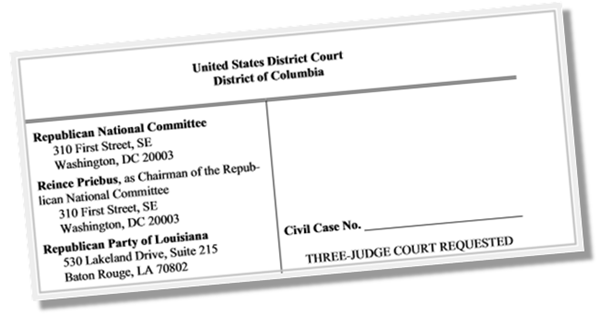
Today, the Republican National Committee (RNC) filed a lawsuit in the United States District Court District of Columbia asking that political parties be able to collect unlimited political contributions for independent expenditures.
In RNC v. Federal Election Commission (FEC), the RNC argues the First Amendment protects the right of political parties to engage in unlimited independent expenditures and accept unlimited contributions to accounts maintained by those parties when designated solely for independent expenditures.
The RNC wants to conduct this independent activity in select U.S. Senate and House Races in 2014 followed in 2016 in the race for the President.
On May 21, a similar lawsuit was brought against the FEC by the Libertarian National Congressional Committee asking for comparable relief.
May 8, 2014 •
FEC AO Concludes Bitcoins Contributions OK
In an advisory opinion released today, the Federal Election Commission (FEC) acknowledged bitcoins as an acceptable form of political contribution. The FEC determined Make Your Laws PAC, Inc. can accept and purchase bitcoins. The commission concluded “bitcoins are ‘money or […]

In an advisory opinion released today, the Federal Election Commission (FEC) acknowledged bitcoins as an acceptable form of political contribution. The FEC determined Make Your Laws PAC, Inc. can accept and purchase bitcoins.
The commission concluded “bitcoins are ‘money or anything of value’ within the meaning of [2 U.S.C. §431(8)(A)(i)].” It also stated bitcoin contributions may be held in a “bitcoin wallet until the committee liquidates them” and the valuation of a bitcoin donation is made “at the time the contribution is received.” However, the commission did not have the requisite four affirmative votes to decide whether bitcoin contributions could be used to acquire goods or services.
According to the Washington Post, FEC Chairman Lee Goodman said, “Just philosophically, I think it’s important for the FEC to embrace technology and innovation, and that’s what we did today.”
April 24, 2014 •
California Governor Appoints FPPC Chairwoman
Gov. Jerry Brown has appointed Judge Jodi Remke as the new chair of the Fair Political Practices Commission (FPPC). Remke is currently the presiding judge of the State Bar Court, which is responsible for the discipline of attorneys. The […]
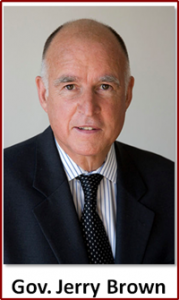 Gov. Jerry Brown has appointed Judge Jodi Remke as the new chair of the Fair Political Practices Commission (FPPC).
Gov. Jerry Brown has appointed Judge Jodi Remke as the new chair of the Fair Political Practices Commission (FPPC).
Remke is currently the presiding judge of the State Bar Court, which is responsible for the discipline of attorneys.
The appointment fills a vacancy created by Ann Ravel’s appointment to the Federal Election Commission.
State and Federal Communications, Inc. provides research and consulting services for government relations professionals on lobbying laws, procurement lobbying laws, political contribution laws in the United States and Canada. Learn more by visiting stateandfed.com.


